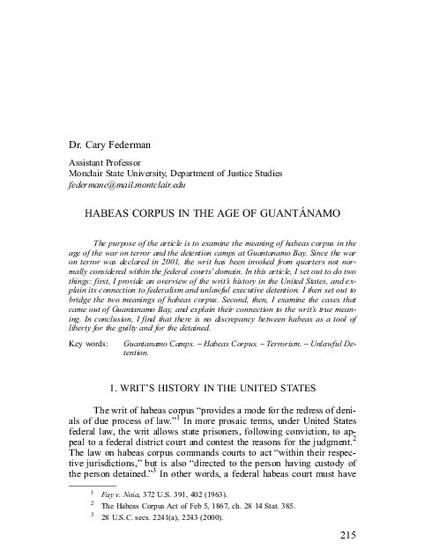
- Constitutional Law,
- Courts,
- Criminal Law,
- Criminology and Criminal Justice,
- International Relations,
- Jurisprudence,
- Law,
- Law and Politics,
- Law and Psychology,
- Legal Studies,
- Military, War, and Peace,
- Political Science,
- Public Affairs, Public Policy and Public Administration,
- Social and Behavioral Sciences and
- Terrorism Studies
The purpose of the article is to examine the meaning of habeas corpus in the age of the war on terror and the detention camps at Guantanamo Bay. Since the war on terror was declared in 2001, the writ has been invoked from quarters not normally considered within the federal courts’ domain. In this article, I set out to do two things: first, I provide an overview of the writ’s history in the United States and explain its connection to federalism and unlawful executive detention. I then set out to bridge the two meanings of habeas corpus. Second, then, I examine the cases that came out of Guantanamo Bay and explain their connection to the writ’s true meaning. In conclusion, I find that there is no discrepancy between habeas as a tool of liberty for the guilty and for the detained.
Available at: http://works.bepress.com/cary-federman/2/
